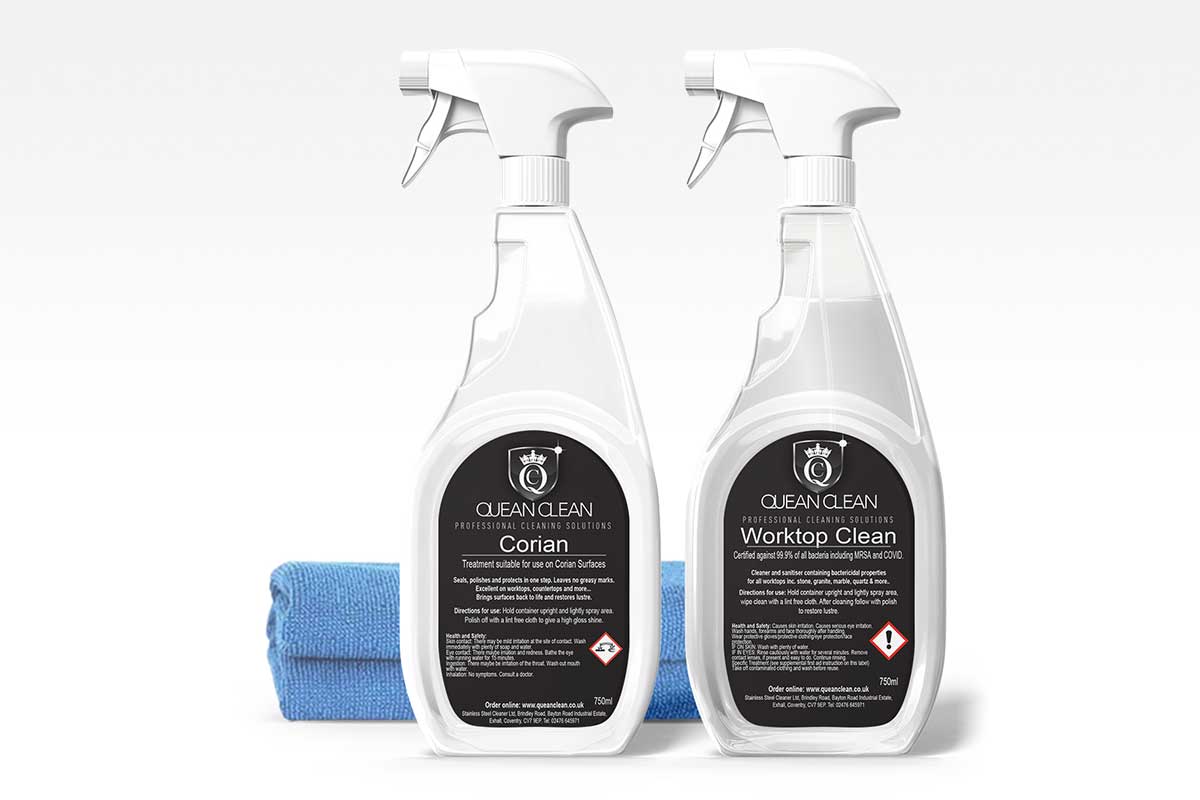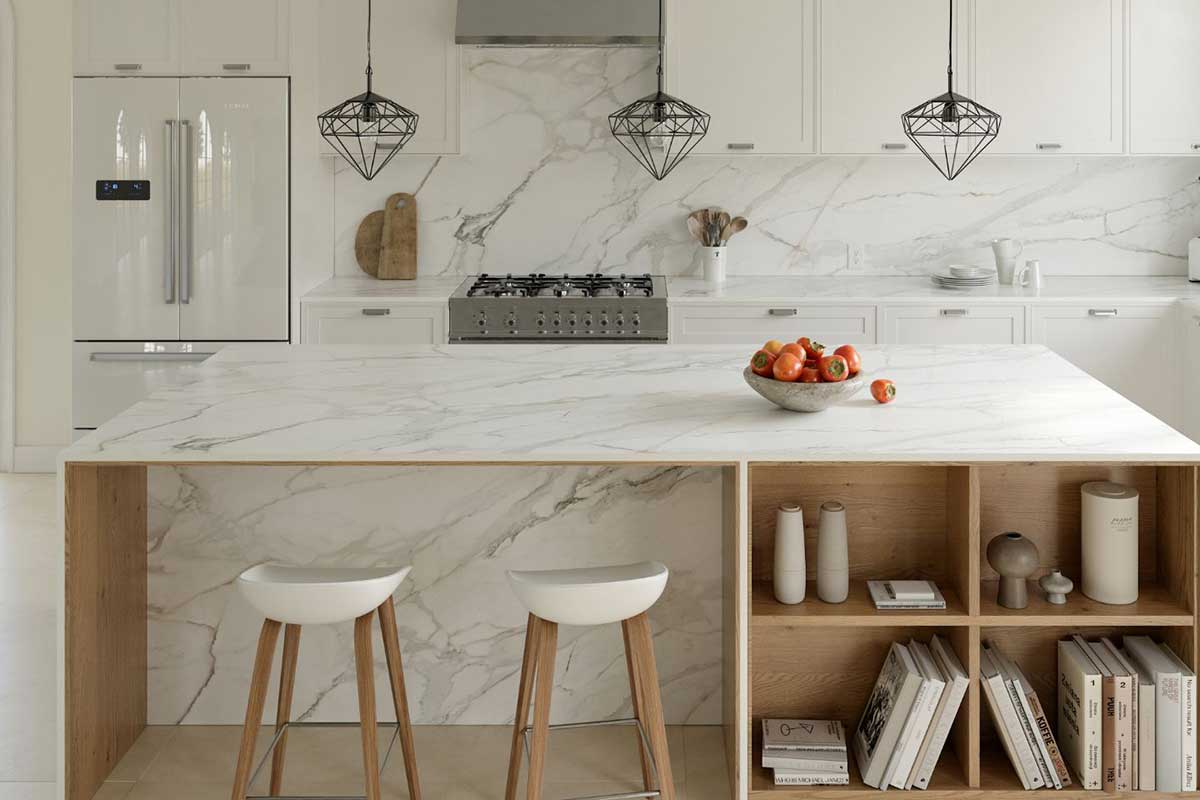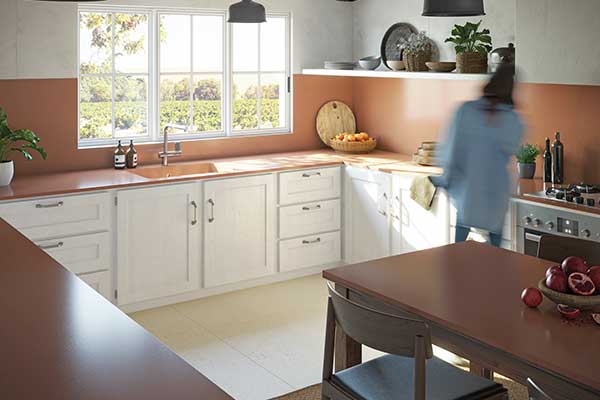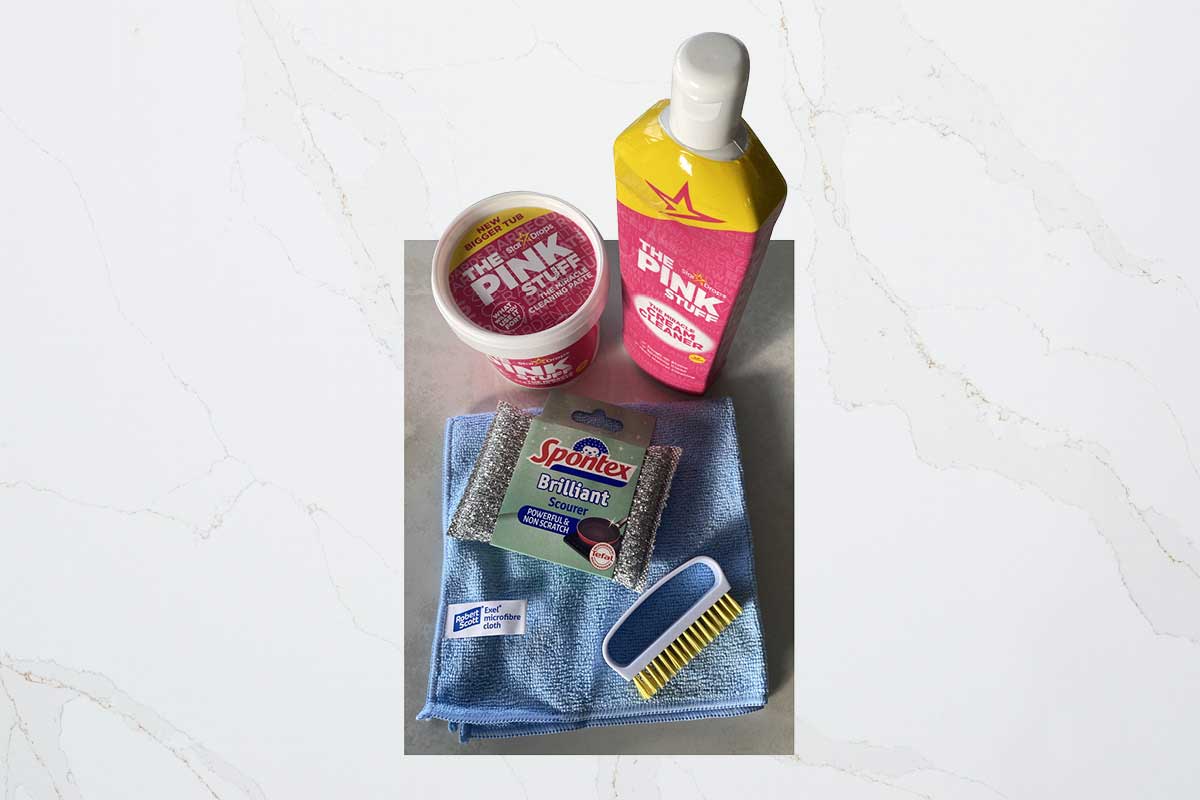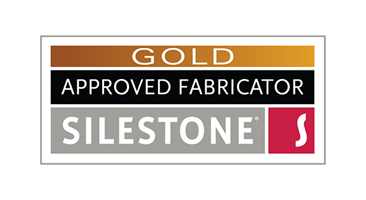Silestone® is the registered brand name of the highest quality quartz, suitable for kitchen and bathroom worktops, sinks, shower trays, flooring and wall cladding. It is manufactured by the Spanish company Cosentino, with a 10 year warranty and fabricated into worktops with a minimum number of almost imperceptible joints, by worktops.net.
What is a Silestone worktop made from?
Silestone is an engineered stone worktop, manufactured from a compound of 94% top quality natural quartz crystals, silica and other natural stone, blended with resins to produce worktop surfaces that are extraordinarily strong, resilient and stain resistant.
A unique feature of Silestone is its antibacterial quality. It literally has a “bacteria and virus killer” based on silver ions, baked into the resin, making it the most hygienic worktop available.
How does a Silestone worktop differ from a Natural Stone worktop?
Natural stone has microscopic pores and cracks which can absorb liquids and in which stains can settle and bacteria can grow. Silestone worktops are solid, non-porous surfaces resembling marble and granite, that are highly stain resistant and completely antiseptic, without requiring any sealing. Silestone has a brighter shine than natural stone, because the quartz crystals give it more sparkle.
In addition, Silestone worktops are available in a huge variety of colours, tones, styles, finishes and textures, together with other unique properties not found in natural stone. Styles include a plain, grained or veined appearance and the textures include a polished, suede or “volcano” finish.
Silestone can be joined virtually seamlessly, in ways not possible with the natural stone worktops, further adding even further to its hygienic properties.
Because of its uniform internal structure, Silestone worktops are much harder (7 on the Mohs scale, compared to marble’s hardness of 3) yet more resilient and flexible than natural stone, making it more scratch resistant, possible to be fitted in longer lengths and because of the manufacturing process, different slabs can be better colour matched.
The available colour tones range from light grey to white, cream to beige, dark grey and black, yellow and orange, pink and red, green, blue, and brown, which can be plain, grained or veined and are not dependent on what is produced by the earth when granite and marble stone is quarried.
Silestone is generally more expensive than natural stone, but offers greater variety and many other benefits.
is avoids cracks showing later.
Repairable
Heavy stains and scratches can be erased without a trace simply by rubbing with household cleaner
Durable
Proven to be remarkably durable, a versatile material that is easy to live with in both domestic and commercial environments
Nonporous
Bacteria and mould have nowhere to take root. When it looks clean, it really is clean
Seamless
Inconspicuous seams result in a smooth surface that enables you to create large designs fashioned from a single element

Easy to Clean
With a non-porous surface that prevents dirt and stains from penetrating the material.
Can Silestone worktops only be used as worktops?
Silestone worktops are eminently suited as worktops in high-end kitchens, bathrooms and serving areas, because of the unmatched hardness of quartz, different thickness of the slabs and the variety of colours and textures.
Silestone incorporates integrated sinks and shower trays and can be used very effectively on floors and walls for an exclusive appearance. Special care should however, be taken though with adhesives and repairs of scratches when they do occur.
Because of its solid, non-porous quality, it has also been approved by health authorities for use in highly sterile areas such as hospitals, surgeries and laboratories. Because it is so easy to keep clean and to maintain the highest levels of hygiene, it is also frequently used in sensitive areas where germs can easily be spread, such as airport and hotel check-in counters.
When should you use Silestone worktops?
Whenever the ultimate in hygiene, durability, scratch- and stain- resistance is required in a modern, vintage or rustic looking kitchen, Silestone will provide you with the best and widest range of options.
Silestone worktops in a large variety of colours, styles and textures, can be combined with countless combinations of upstands, splashbacks, downturns, wall cladding, overhangs, edgings, return ends and cut-outs for integrated sinks, bowls and cooking tops for a bespoke design.
Other inspiring articles
How to take scratches out of kitchen worktops
We’ve pulled together this handy guide on how to take scratches out of kitchen worktops. Other than the floor, kitchen worktops have to withstand the greatest amount of wear and tear. They [...]
Dekton worktops: Pros and cons
We understand that choosing the right worktop can be a daunting task and that’s why we’ve put together the pros and cons of the Dekton worktop if you’re considering this brand for [...]
How to replace kitchen worktops
If you’re looking to replace a kitchen worktop, it can be a daunting and expensive task. There's a lot of preparation and research that needs to go into the process, and it [...]
How to clean kitchen worktops
Overview Normal Maintenance Due to its practically zero porosity, ultra-compact surfaces are highly resistant to staining in day-to-day use making it ideal for use as a kitchen worktop and as a [...]


